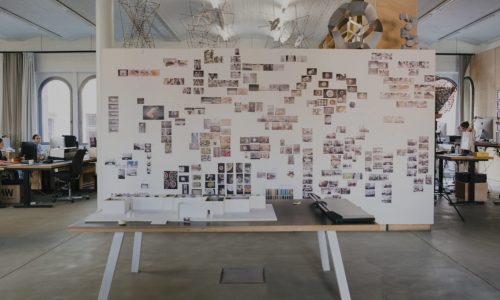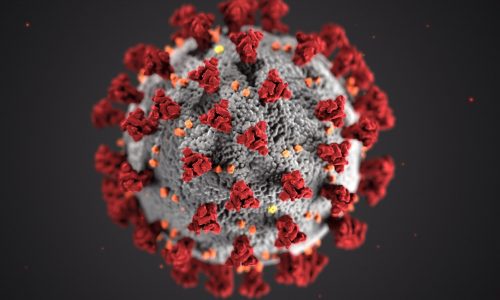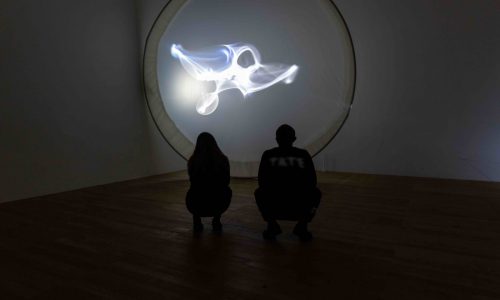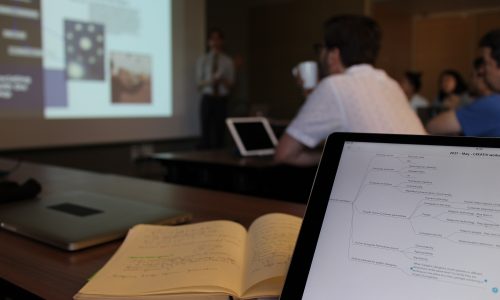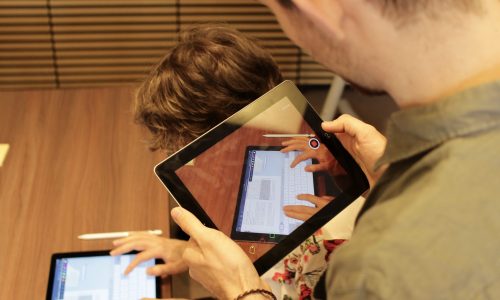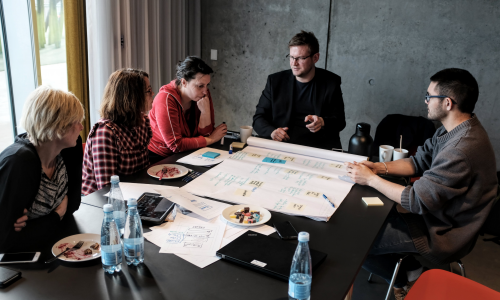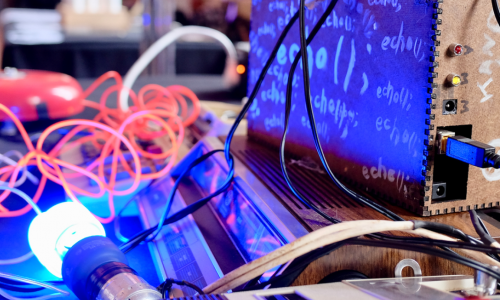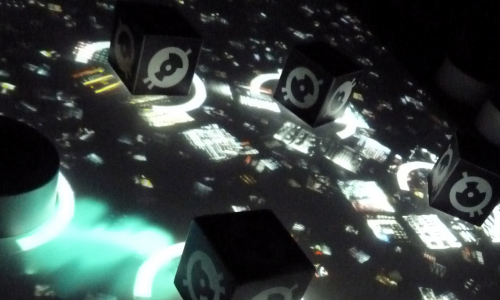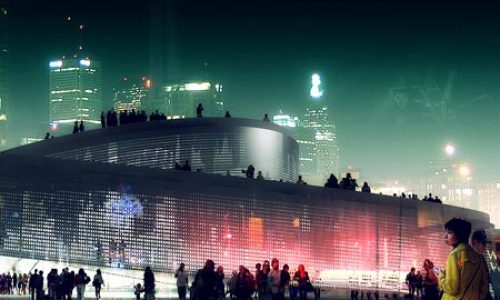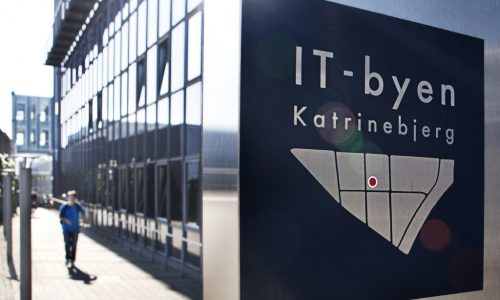
The Centre for Digital Creativity
The Centre for Digital Creativity at Aarhus University is the main hub for my research projects. At the centre, we explore how digital tools and systems influence creativity and innovation. We study real-life use of digital tools in creative processes, develop and experiment with prototypes of new tools and prototypes, and develop theories to understand the role and nature of digital tools in creative processes. Visit the centre website to learn more.
Current projects
Managing Ideas in Creative Work
The project examines the role and nature of tools that designers use to capture, manage, and develop ideas, specifically in the domain of design. We integrate ‘in the wild’ studies of idea repositories and idea management in leading design organizations with theoretical contributions from Creativity Research, Human- Computer Interaction, and Design Research. Read more on the project website.
Reinvent
In Reinvent, we work with partners in industry and the public sector to create a participatory platform for communities to develop, discuss and present best- practice examples of solutions for how to rethink society after the COVID-19 lockdown. Read more on the project website.
Experimenting, Experiencing, Reflecting
A collaboration between science and art led by artist Olafur Eliasson and scientist Andreas Roepstorff. Our experiments examine perception, decision-making, action, notions of togetherness, collaboration, and the transmission of knowledge. These scientific experiments are incorporated into and inform art projects and installations in museums and other public institutions. Read more on the project website.
Human-Centered Information Spaces
A collaboration between Aarhus University, MIT, and UC San Diego. We envision a future in which the existing world of documents and applications is linked to multiscale personalized information spaces in which dynamic visual entities behave in accordance with cognitively motivated rules sensitive to the context of tasks, personal and group interaction histories of activiy. Read more on the project website.
Previous projects
CoCreate
CoCreate studies the benefits and shortcomings of digital tools used in creative work today, and combines this knowledge with insights from humanistic IT research to develop and deploy prototypes of novel digital tools that present meaningful alternatives to how we can integrate digital tools in the creative process. Read more on the project website.
PLACED
How can new and dynamic digital services help libraries transform into vibrant urban innovation hubs by supporting knowledge creation activities among citizens and turning this knowledge into an ever-growing part of the urban community’s shared resources? The PLACED project introduces a new type of place- and activity-centric digital library services. Whereas library services typically focus on providing access to a collection of media, PLACED services support activities in the library. Read more on the project website.
Creative Tools
Creative Tools explored the interplay between digital tools and creative processes. Across a range of domains, including architecture, design, digital arts, and scientific exploration, the project examined how digital tools influence creative processes. This was done by using insights from observations of real-life creative work practices to drive the development of prototypes of novel digital tools, which can support and augment existing creative practices, or pave the way for new ones. Read more on the project website.
Creativity in Blended Interaction Spaces
This project developed and explored blended interaction spaces that support the creative potential of high-school students. The objectives were 1) to demonstrate the potential for integrating multiple digital devices and analog materials in a shared environment, to support individual and group creativity, and 2) to develop the theoretical foundation for the study of constraints on creativity, design ideas, generative design materials, and creative methods in design processes. Read more on the project website.
Digital Urban Living
Digital Urban Living examined new forms of digital urban living reflected by the societal and technological development of the experience economy. The central tenet of the project was that the nature of digital urban living can be addressed in a productive way by a complementary and integrated set of theoretical perspectives: Experience Communication, Innovation Management, Interaction Design, and Interface Aesthetics. Read more on the project website.
CoCreate
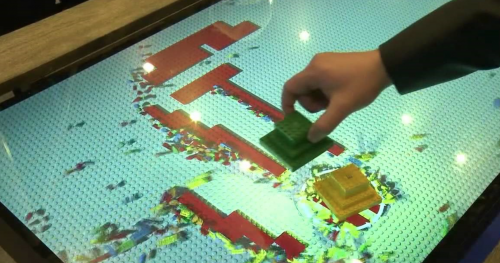
CoCreate (2017-2021), funded by the Velux Foundations, explores the use of digital tools in collaborative creative work. While digital tools systems play an increasingly central role in human creativity, we know little about how these tools affect the creative process. As a result, many tools are poorly suited to support creative practices, especially when it comes to collaboration. CoCreate tackles this issue head on to develop a better understanding of the role and nature of digital tools in collaborative creativity. On the one hand, this will give us a richer understanding of both collaborative creativity and digital tools; on the other hand, it can help us build better digital tools for supporting collaborative creativity in the future. In the project, we will therefore both study the benefits and shortcomings of digital tools used in creative work today, and combine this knowledge with insights from humanistic IT research to develop and deploy prototypes of novel digital tools that present meaningful alternatives to how we can integrate digital tools in the creative process.
PLACED

PLACED (Place- and Activity-Centric Dynamic Library Services, 2016-2020) is a joint European research project aimed at developing a new type of place- and activity-centric digital library services. Whereas library services typically focus on providing access to a collection of media, PLACED services support activities in the library. The groundbreaking aspect is that these services capture knowledge generated through these activities, make them a part of the library’s collection, and allow future library users to explore and access them. In this way, PLACED services help break down the institutional walls of the library and make it an integrated part of urban life by creating an ever-evolving collection built on urban activities and knowledge generation.
Creative Tools
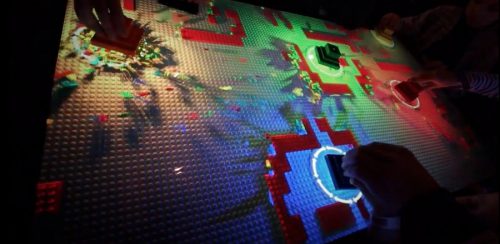
Creative Tools (2016-2020), funded by the Aarhus University Research Foundation, explores the interplay between digital tools and creative processes. Across a range of domains, including architecture, design, digital arts, and scientific exploration, the project examines how digital tools influence creative processes. The objective is to use insights from observations of real-life creative work practices to drive the development of prototypes of novel digital tools, which can support and augment existing creative practices, or pave the way for new ones. The research objective is to advance the field of digital creativity research by developing an integrative understanding of digital tools in collaborative creativity. To achieve this, we will combine insights and expertise from creativity and design studies rooted in the Humanities with research into collaborative IT from Computer Science
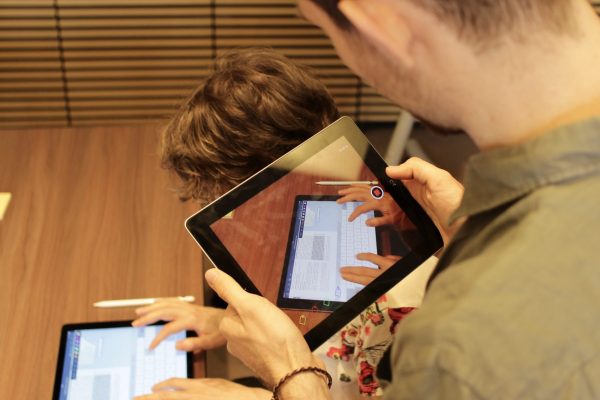
CoCreate
CoCreate studies the benefits and shortcomings of digital tools used in creative work today, and combines this knowledge with insights from humanistic IT research to develop and deploy prototypes of novel digital tools that present meaningful alternatives to how we can integrate digital tools in the creative process.
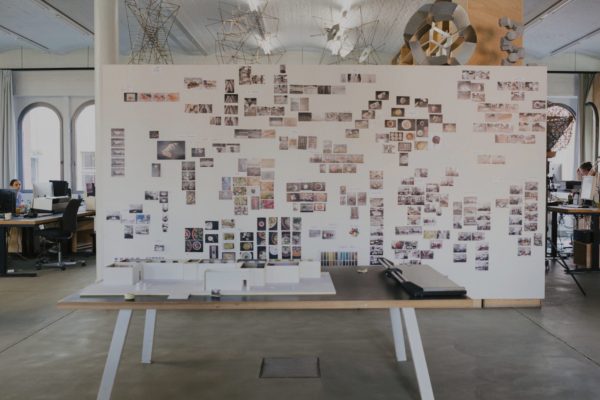
Managing Ideas in Creative Work
The project examines the role and nature of tools that designers use to capture, manage, and develop ideas, specifically in the domain of design. We integrate ‘in the wild’ studies of idea repositories and idea management in leading design organizations with theoretical contributions from Creativity Research, Human- Computer Interaction, and Design Research.
